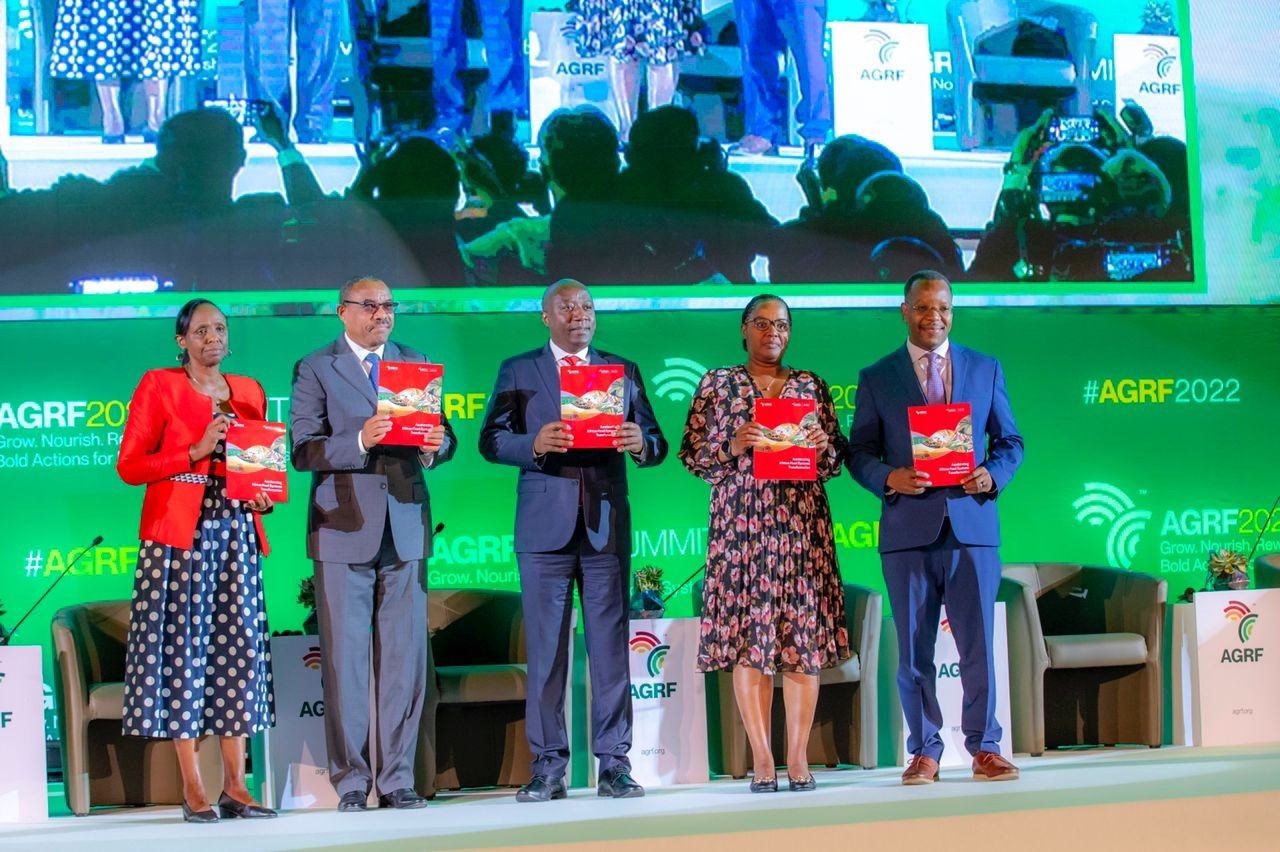Landmark Africa Agriculture Status Report development led by CANR professors
Robert Richardson and Thom Jayne of CANR led creation of major report calling for acceleration of African food systems transformation.
Kigali, Rwanda, Africa Agriculture Status Report (AASR) released at the African Green Revolution Forum (AGRF) on September 6, 2022. This high-priority report on African food systems is an urgent call for transformation toward greater sustainability and resilience. With the second largest continental population – 1.2 billion people – the success of African food systems is crucial for global food security. Recent shocks including the COVID-19 pandemic, the impacts of climate change, and the effects of the Ukraine war have made clear the connectedness of our food systems with global inflation and rising commodity prices.
“On behalf of the College, I thank Professors Richardson and Jayne for their ongoing leadership on this critical – and urgent – subject,” said Kelly Millenbah, interim dean of the College of Agriculture and Natural Resources (CANR). “This year’s AASR report will serve as a powerful, timely resource for governments and development partners as they work to transform food systems across the African continent.”
The AASR is a strategic guide for African leadership to focus on accelerating agri-food transformations to reduce food insecurity, meet the United Nations Sustainable Development Goals (SDGs), and build African resilience to global and local shocks. According to Robert Richardson, lead editor and professor in the Department of Community Sustainability, “Africa’s food systems are highly vulnerable to the ongoing impacts of the COVID-19 pandemic, climate change, conflict, and other shocks. Without transformative change, African food systems will continue to lag human development and food security globally, and the continent will continue a dependence on food imports.”

CANR has a long history of contributing to the roadmap toward sustainable and resilient African food systems, which continues through the AASR with cross-departmental and multi-institutional collaboration including CANR faculty, MSU’s Alliance for African Partnership (AAP), Cornell University, the African Development Bank and the Alliance for a Green Revolution in Africa (AGRA). Co-editor Edward Mabaya of Cornell University presented the report at the African Green Revolution Forum and Thomas Jayne, University Foundation Professor Emeritus of the Department of Agricultural Food, and Resource Economics was the third technical editor on the AASR.
Richardson and Jayne were also co-authors of the first and final chapters of the AASR. They highlighted six megatrends shaping African food systems, including rural population growth and growing land scarcity; the need to supply food to rising urban populations; increasing wages and economic transformations; climate change; ongoing economic, health and political shocks; and the acceleration of technological innovation in digital agriculture. The authors argue that these megatrends warrant greater attention by stakeholders. Jayne explains, "Many of these trends are already putting tremendous pressures on African food systems and it is important that policy makers anticipate and respond proactively to them rather than reactively."
Alliance for African Partnership Africa director, Richard Mkandawire, with assistant Africa director Tony Milanzi and co-director José Jackson-Malete, were co-authors with AGRA experts for the second chapter of the report, “Catalyzing African Leadership and Coordination for Agricultural Transformation” which explores the complex and vital task of leadership coordination and high-level vision-setting combined with local-level leadership to develop “agri-food system champions.” Tony Milanzi, Assistant Director, AAP Africa Office said, “AAP is delighted to contribute to this year’s Africa Agriculture Status Report. This speaks volumes to the emerging recognition of AAP in expanding its reach to African stakeholders and being part of continental conversations on key issues related to Africa’s development.” The authors emphasize the need for continuing efforts to build the capacity of African research leaders, including initiatives such as the African Futures Research Leadership Program, led by the AAP.
The report also details a plan for how to mobilize financial resources to effect this agri-food transformation. This will necessarily be a complex mix of financial tools such as supply chain financing through digital solutions, partial credit guarantees, risk sharing facilities, fintechs and crop receipts. The need to finance climate resilience solutions for smallholder farmers was also stressed. Lulama Traub, Feed the Future Innovation Lab for Food Security Policy Research, Capacity, and Influence (PRCI) Executive Committee member was one of three co-authors for the fourth chapter discussing how African agri-food systems can become resilient and sustainable.
The report concludes with recommendations for priorities for African national governments, development partners, and the private sector to achieve the goal of food systems transformation. Richardson warns, “Without transformation, African food systems will further exacerbate environmental destruction. There is a growing recognition that we need to think about food systems differently, accounting for the true values and full costs involved in growing, distributing, and consuming food. The 2022 AASR provides a roadmap for accelerating the goal of food systems transformation.”



 Print
Print Email
Email